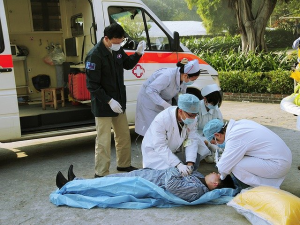
Serum selenium and selenoprotein P concentrations drop to very low levels very quickly following major traumatic injury. The very low selenium and selenoprotein P levels are associated with poor survival odds [Braunstein].
These findings in a study done at the University Hospital in Munich, Germany, suggest that selenium supplementation may be a meaningful adjuvant treatment strategy for patients who have suffered major trauma [Braunstein].
Selenium and Critical Illness
Lower than normal selenium status is characteristic of critical illness. Low selenium status can affect the course and the outcome of various diseases [Braunstein].
For example, Bomer et al [2019] found that heart failure patients with serum selenium levels below 70 micrograms per liter had poorer quality of life, poorer exercise capacity, and poorer prognosis than heart failure patients with higher serum selenium levels.

